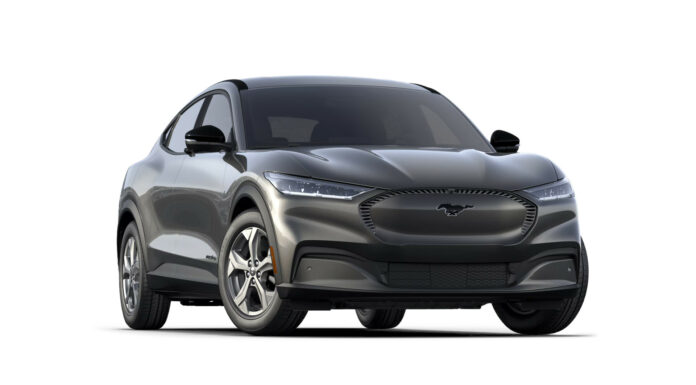Ford Shifts Gears: Embracing Hybrids Amidst EV Evolution
In the ever-evolving automotive landscape, Ford Motor Company has taken a pivotal turn. Amidst a backdrop of slower-than-anticipated electric vehicle (EV) adoption rates, the American auto giant is recalibrating its approach.
By delaying the production of its all-electric SUVs and pickup trucks, Ford is strategically pivoting towards offering hybrid options across its entire range by 2030. This move not only highlights Ford’s adaptability but also its commitment to meeting the diverse needs of consumers. Let’s delve into the nuances of this strategic shift and its implications for the future of automotive innovation.
Understanding Ford’s Strategic Pivot
At a time when the automotive industry is at a crossroads, Ford’s decision to delay the production of its all-electric SUVs and pickup trucks sends a clear message. The slower-than-expected adoption of EVs has prompted Ford to reassess its strategy. By shifting focus to hybrid vehicles, Ford is positioning itself as a forward-thinking player in a rapidly changing market.
The delay in production schedules for key EV models, including the three-row SUV and the next-gen electric pickup codenamed ‘T3’, is a strategic move. By postponing the production of the SUV from 2025 to 2027 and the pickup from 2025 to 2026, Ford is allowing more time for the consumer market for three-row EVs to mature. This approach also enables Ford to leverage emerging battery technologies, aiming to offer customers increased durability and better value.

Ford’s Commitment to Electrification
Despite the production delays, Ford’s commitment to electrification remains unwavering. Ranked second in EV sales in the U.S., just behind Tesla, Ford’s position as a leader in the EV space is undisputed. With the automotive titan holding the third position in overall company sales, outsold only by Tesla and the Hyundai Group, Ford’s market presence is formidable.
Jim Farley, CEO of Ford, emphasized the company’s dedication to scaling a profitable EV business. By using capital wisely and launching the right mix of gas, hybrid, and fully electric vehicles at the optimal time, Ford is charting a course for sustainable growth.
The additional time allocated for the development of Ford’s next-generation EVs is expected to revolutionize the market. These vehicles, built from the ground up and fully software-enabled, promise ever-improving digital experiences and a plethora of potential services.
The Hybrid Advantage
Ford’s strategic emphasis on hybrid vehicles underscores the practicality and appeal of hybrid technology. Hybrids offer a bridge between traditional gasoline-powered vehicles and full EVs, providing consumers with the best of both worlds. With improved fuel efficiency and reduced emissions, hybrids represent a viable option for consumers who are not yet ready to make the leap to fully electric vehicles.
By offering hybrid options across its entire range by 2030, Ford is catering to a broader audience. This inclusive approach ensures that Ford remains at the forefront of automotive innovation, appealing to both traditionalists and eco-conscious consumers. The focus on hybrid technology also aligns with Ford’s long-term vision of a more sustainable and environmentally friendly automotive industry.
Looking Ahead: Ford’s Vision for the Future
Ford’s strategic adjustment in the face of evolving market dynamics is a testament to the company’s resilience and foresight. By embracing hybrid technology and delaying the production of certain EV models, Ford is positioning itself for long-term success. The automotive giant’s ability to adapt to changing consumer preferences and technological advancements will undoubtedly shape the future of mobility.
As Ford continues to invest in EVs and explore emerging battery technologies, the anticipation for its next-generation EVs grows. These vehicles, promising unparalleled durability, value, and digital experiences, are poised to redefine the automotive landscape. Ford’s commitment to innovation, coupled with its strategic focus on hybrids, underscores the company’s dedication to leading the charge towards a more sustainable and technologically advanced future.
In conclusion, Ford Motor Company’s strategic pivot is a bold move in response to the challenges and opportunities presented by the global automotive market. By embracing hybrid technology and delaying the production of select EV models, Ford is not only addressing the current market realities but also laying the groundwork for future innovations. As the automotive industry continues to evolve, Ford’s adaptability and forward-thinking approach will undoubtedly play a pivotal role in shaping the trajectory of automotive innovation.
FAQs on Ford’s Strategic Shift to Hybrids and EV Production Delays
Why is Ford delaying the production of its all-electric SUVs and pickup trucks?
Ford is adjusting its production timeline due to the slower-than-expected adoption of electric vehicles (EVs) across the automotive industry. By delaying the launch of its all-electric SUVs and pickup trucks, Ford aims to better align its offerings with consumer demand and technological advancements in battery technology.
What does Ford’s shift towards offering hybrid options mean?
Ford’s focus on expanding its hybrid vehicle offerings across its entire range by 2030 signifies the company’s commitment to providing consumers with more fuel-efficient and environmentally friendly alternatives to traditional gasoline vehicles. This strategic shift underscores Ford’s dedication to innovation and sustainability, offering a practical bridge between conventional and fully electric vehicles.
How will this strategic shift affect Ford’s position in the EV market?
Despite the production delays, Ford remains committed to electrification and is poised to continue as a key player in the EV market. By balancing its portfolio with hybrid vehicles and planning the launch of next-generation EVs, Ford aims to cater to a broader audience, enhancing its market presence and competitive edge.
What are the benefits of Ford focusing on hybrid vehicles?
Hybrid vehicles offer several advantages, including improved fuel efficiency, lower emissions compared to traditional gasoline vehicles, and no range anxiety that some consumers may have with fully electric vehicles. By offering hybrids, Ford can attract consumers who are interested in more sustainable driving options but are not yet ready to transition to fully electric vehicles.
When can we expect the next-generation Ford EVs to hit the market?
Ford has rescheduled the production of its three-row SUV to 2027 and its next-gen electric pickup, codenamed ‘T3’, to 2026. These next-generation EVs are promised to be groundbreaking, built from the ground up, fully software-enabled, and designed to offer superior durability, value, and a plethora of digital experiences and services.
How does Ford plan to use the additional time before these EVs are launched?
Ford intends to use the extra time to further develop the consumer market for three-row EVs and take advantage of emerging battery technologies. This strategic pause allows Ford to refine its upcoming EV offerings, ensuring they meet the evolving needs and expectations of consumers while delivering increased durability and better value.
Will Ford continue to invest in electric vehicle technology?
Absolutely. Ford’s commitment to scaling a profitable EV business remains steadfast. The company continues to invest in electric vehicle technology, infrastructure, and innovations. The strategic delays and increased focus on hybrid vehicles are part of a broader plan to use capital wisely and introduce a mix of gas, hybrid, and fully electric vehicles at the right time.
What does this mean for consumers interested in Ford EVs now?
Consumers can still look forward to Ford’s current and upcoming electric vehicles, including models like the Mustang Mach-E and the F-150 Lightning. Ford’s strategic adjustment does not diminish its commitment to offering electric vehicles but rather ensures that when new EV models are introduced, they are well-aligned with market demands and the latest technological advancements.
How will this affect Ford’s competitiveness in the automotive market?
Ford’s strategic realignment is expected to enhance its competitiveness by diversifying its vehicle offerings to include a mix of gasoline, hybrid, and electric vehicles. This approach allows Ford to appeal to a wide range of consumers, from those seeking the latest in EV technology to those preferring the traditional or hybrid automotive options. By adapting to market trends and consumer preferences, Ford aims to strengthen its market position and lead in innovation and sustainability.
































